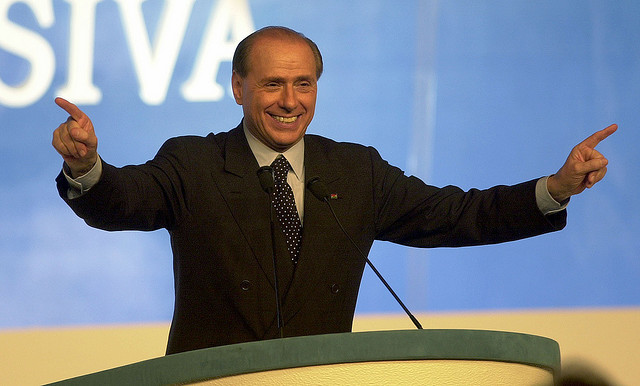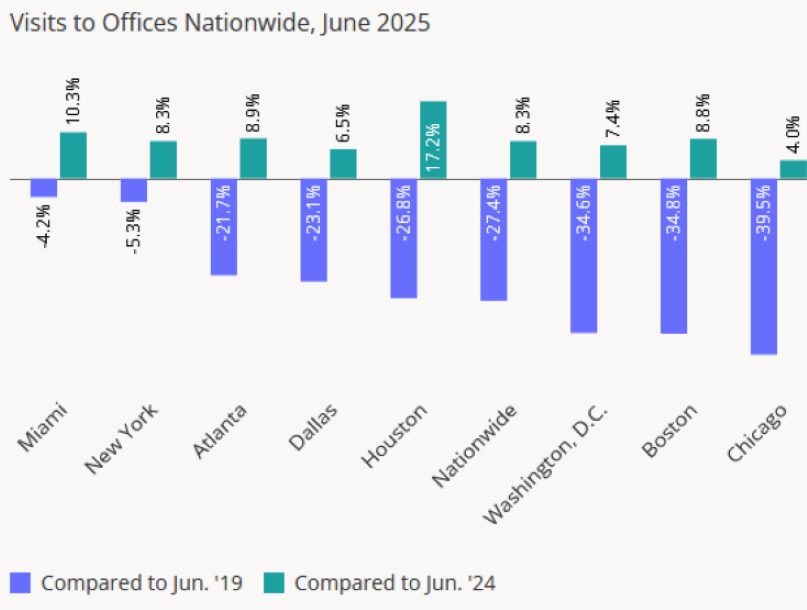Economy Watch: Conference Board Predicts Sluggish World Economy for a Decade, Berlusconi Out
The Conference Board released a big-picture report saying it's going to be a long road ahead. Home prices in Las Vegas haven't stopped dropping yet. And Italian PM Berlusconi will be out as soon as economic reforms are set.
November 9, 2011
By Dees Stribling, Contributing Editor
The Conference Board released a big-picture report on the world economy on Tuesday, essentially predicting that it’s going to be a long, slow slog ahead. Specifically, the organization says that world economy will grow at about 3 percent a year on average until the middle of the next decade — the 2020s, that is, not the 2010s. Predicting so far ahead can be dicey business, but the generically named report, “The Conference Board Global Economic Outlook,” has a go at it, providing projections for output growth of the world economy for 2012, the period 2013 to 2016 inclusive, and 2017 to 2025 inclusive, including 12 major regions and about 50 advanced and emerging economies.
According to the report, the biggest risk ahead for the global economy isn’t an overall slower growth in output, but a slowdown in average output per capita, which will determine how fast living standards can be raised. At 3 percent, on average, global growth will still beat the period from 1980 to 1995, but will fall between half and a full percentage point below the growth rate from 1995 to 2008. A recovery in advanced economies will be more than offset by a gradual slowdown in emerging ones as they mature, with the net result being that global growth will slow.
“The greatest challenge for the global economy in this slow-growth environment is to raise productivity without losing job opportunities for the millions who are looking for reasonably paid jobs to support their living standards,” Bart van Ark, chief economist of the Conference Board, noted in a statement. “The growth rate of per capita income globally has been around 2.4 percent since the beginning of the century, but sometime between 2017 and 2025, this rate will fall below 2 percent. In contrast to the past half century, that slowdown will also be accompanied by slower growth in population.”
A New (Depressed) Normal for the Greater Vegas Housing Market
The Greater Las Vegas Association of Realtors has reported that Las Vegas-area home prices haven’t quit going down yet, with the market experiencing a 1.9 percent month-over-month drop in median prices in October, from $123,400 to $121,000. A year ago, the median price in the market was $133,000.
Homes are selling in the market, according to the Realtors, so Vegas isn’t completely comatose. The total number of residential transactions — including single-family, townhouse and condo sales — was 3,881 in October, down from 4,108 in September, but an increase from 3,385 during October 2010. Thus the market is arguably a kind of microcosm for the rest of the nation, with homes selling but prices depressed by the trade in foreclosed properties — and there are a lot of those in Vegas. The median price of bank-owned single-family homes in the market in October was $109,900, notes the Realtors.
Buying a house with a standard mortgage is hardly standard any more in the greater Vegas market. The Realtors also reported that exactly half of the existing homes sold in the market in October were sold for cash, down slightly from 50.7 percent in September. Also, about a quarter of the transactions in October — 25.4 percent — were short sales.
Berlusconi Out, More Uncertainty for Euro-Debt In
In the end, not even a personal fortune in the billions nor control over much of Italy’s mass media could save Prime Minister Silvio Berlusconi’s job on Tuesday, when his government couldn’t muster a simple majority in parliament for a budget measure. Later in the day, the PM said he would quit as soon as various economic reforms were put in place, at the urgent behest of the rest of the euro-zone, to deal with Italian debt.
At least Berlusconi has the distinction of being the longest-serving Italian prime minister since World War II, and third-longest since the creation of Italy, behind Mussolini and the less-flamboyant early 20th-century Giovanni Giolitti. Less clear is what parliament will do to stabilize the Italian economy, which has lately (in the last few days, it seems) taken over from Greek as Europe’s dangerous sick economy.
Wall Street wasn’t worried about Italy on Tuesday, though surely it will panic about it sometime or other. The Dow Jones Industrial Average gained 101.79 points, or 0.84 percent, while the S&P 500 and the Nasdaq were up 1.17 percent and 1.2 percent, respectively.








You must be logged in to post a comment.